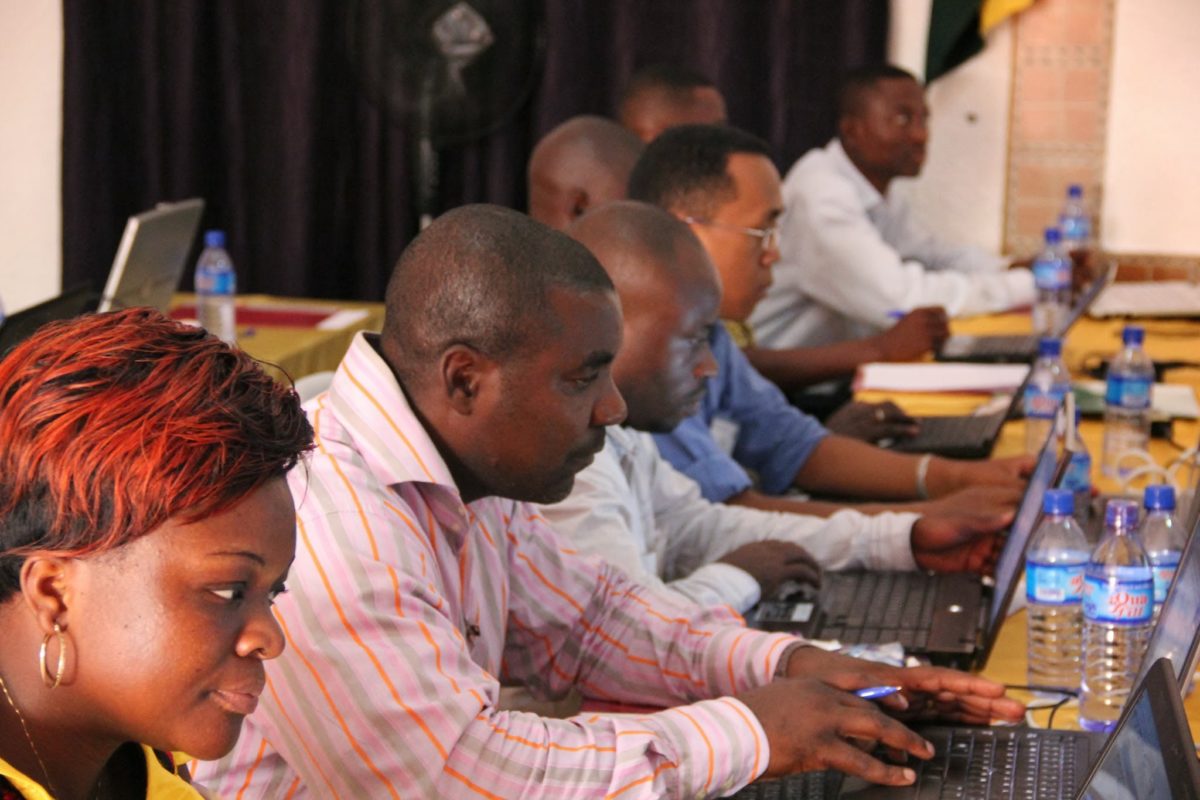SEATTLE, Washington – September 05, 2018 – The JRS Biodiversity Foundation announces two new grant awards, totaling $517,300, to support the development of curricula to train future biodiversity informaticists. The investments are part of JRS’ Capacity Development program to increase access to biodiversity data and knowledge in sub-Saharan Africa.
The pressures upon Africa’s biodiversity make it vital that the data that describe the trends of species and ecosystems are accessible to those who seek to conserve biodiversity. Less than 10% of the globally accessible data of sub-Saharan Africa’s biodiversity has been published by African institutions. The shortage of biodiversity information scientists constrains the ability of African countries to monitor and conserve their own natural resources.
The JRS Biodiversity Foundation approach to capacity development supports the training of individuals and building networks in the context of solving locally-relevant challenges of access to and use of biodiversity information. The two projects announced today offer in-depth, long-term training in biodiversity informatics as well as build partnerships among data providers and data end-users.
University of Abomey-Calavi – Regional Capacity Building and Biodiversity Conservation in Africa, $260,500.
A new Master’s Program in Biodiversity Informatics, led by Dr. Jean Ganglo, will help to provide graduate-level training in biodiversity information science to a cohort of 30 students per year over the next three years. The Program will be Africa’s first graduate program dedicated to the science and practice of biodiversity data collection and use. Students will take courses in the latest technology and informatics fundamentals, and they will pursue internships that pair students with professionals with specific biodiversity data needs. A third of each cohort will be recruited from other African countries to the Benin-based program, and annual training workshops will be held for regional, non-academic audience. This new Master’s course prepares future professionals to bring data informatics to the conservation and development sectors, and prepares future trainers to sustain the program.
Earth Sciences Department, University of Oxford – Second Generation of the Biodiversity Informatics Training Curriculum, $256,800.
A team led by Dr. Erin Saupe at the University of Oxford will increase the access to biodiversity informatics trainings for African scientists. This project will expand on the JRS-supported Biodiversity Informatics Training Curriculum (BITC) led by the University of Kansas. The second generation of BITC will bring locally-relevant data informatics trainings via in-person workshops in Rwanda, Malawi, and Botswana in addition to enhancing online training resources. Trainings in these three countries will be designed through engagement with local decision-makers to define course priorities and to build networks of data end-users and data providers. Existing trainings, which have been used to model new graduate programs in biodiversity informatics, will be enhanced through subtitling into multiple languages. Furthermore, social media will be utilized to develop and strengthen networks of biodiversity data specialists. Through the formation of an advisory board of African scientists, course materials will be developed to meet African needs, and the governance of BITC will be transferred to an African institution at the end of the project. JRS believes that local partners are most attuned to African needs for the data and information that serves decisions that balance conservation and sustainable development.
About the JRS Biodiversity Foundation – The mission of the JRS Biodiversity Foundation is to increase access to and use of information that will lead to greater biodiversity conservation and more sustainable development in Sub-Saharan Africa. Founded in 2004, the JRS Biodiversity Foundation supports the capacity of institutions and people who collect, manage, and disseminate biodiversity data in Sub-Saharan Africa. JRS’ grantee partners connect this knowledge to stakeholders who make and influence decisions that are crucial to supporting biodiversity. The foundation has awarded $18M in grants since 2007. Visit us online at https://jrsbiodiversity.org.
About University of Abomey-Calavi – The university of Abomey-Calavi (UAC) is a public university in Benin. The mission of the university is a citizen institution, reactive and proactive in the development of the Beninese nation. Visit online at https://www.uac.bj.
About Earth Sciences, University of Oxford – Known as the oldest university in the English-speaking world. The Earth Sciences department has a strong track record in capacity development, scientific support, and program delivery across a range of geoscience disciplines and African nations. Visit online at https://www.earth.ox.ac.uk/.
Click here to download this announcement.
JRS Contact: Don S. Doering, Executive Director, ddoering@jrsbiodiversity.org, +1 (206) 454-7915
UAC Contact: Jean Ganglo, Professor of Forestry and Plant Sociology, ganglocj ‘at sign’ gmail.com, +229 6636 3770
University of Oxford Contact: Erin Saupe, Associate Professor of Palaeobiology, erin.saupe ‘at sign’ earth.ox.ac.uk, +44 7449 140440

